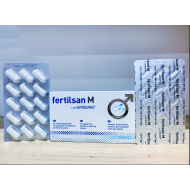
- Stock: In Stock
- Brand: Acme Laboratories Limited
- Product ID: Cefuroxime Axetil
100% Secure Payment

This Item is for pre order
Famicef DS Suspension 35 ml
Indications
Cefuroxime is indicated in the treatment of:
Upper respiratory tract infections: for example, ear, nose and throat infections such as otitis media, sinusitis, tonsillitis and pharyngitis.
Lower respiratory tract infections: for example, acute bronchitis, acute exacerbations of chronic bronchitis and pneumonia.
Skin and soft tissue infections: such as furunculosis, pyoderma, and impetigo.
Genito-urinary tract infections: such as pyelonephritis, urethritis, and cystitis.
Gonorrhoea: acute uncomplicated gonococcal urethritis, and cervicitis.
Early Lyme disease & subsequent prevention of late Lyme disease.
Pharmacology
Cefuroxime is a well-characterized and effective antibacterial agent, which has broad-spectrum bactericidal activity against a wide range of common pathogens, including β-lactamase producing strains. Cefuroxime has good stability to bacterial β-lactamase and consequently, is active against many ampicillin-resistant and amoxycillin-resistant strains.
Dosage
ORAL DOSAGE:
Adults:
Most infections will respond to 250 mg b.i.d. In mild to moderate lower respiratory tract infections e.g. bronchitis 250 mg b.i.d. should be given. For more severe lower respiratory tract infections, or if pneumonia is suspected then 500 mg b.i.d. should be given.
For urinary tract infections a dose of 125 mg b.i.d. is usually adequate; in pyelonephritis the recommended dose is 250 mg b.i.d.
Uncomplicated gonorrhoea: A single dose of one gram is recommended for the treatment of uncomplicated gonorrhoea.
Lyme disease (In adults and children over the age of 12 years): the recommended dose is 500 mg b.i.d. for 20 days.
Children:
The usual dose is 125 mg b.i.d., or 10 mg/kg b.i.d. to a maximum of 250 mg daily.
For otitis media, in children less than 2 years of age the usual dosage is 125 mg b.i.d., or 10 mg/kg b.i.d. to a maximum of 250 mg daily and in children over 2 years of age, 250 mg b.i.d., or 15 mg/kg b.i.d. to a maximum of 500 mg daily. There is no experience in children under three months of age. The usual course of therapy is seven days.
PARENTERAL DOSAGE:
Adults: 750 mg to 1.5 g IM or IV every 8 hourly, usually 5 to 10 days. Preoperative prophylaxis: For clean contaminated or potentially contaminated surgical procedures, administer 1.5 g IV prior to surgery ( 1 / 2 to 1 hour before). Thereafter, give 750 mg IV or IM every 8 hours when the procedure is prolonged.
Infants and children (>3 months): 50 to 100 mg/kg/day in equally divided doses every 6 to 8 hours. Use 100 mg/kg/day (not to exceed the maximum adult dose) for more severe or serious infections.
Bone & joint infections: 150 mg/kg/day (not to exceed the maximum adult dose) in equally divided doses every 8 hours.
Bacterial meningitis: Initially 200 to 240 mg/kg/day IV in divided doses every 6 to 8 hours.
Administration
Cefuroxime should be taken after food for optimum absorption.
Interaction
No potentially hazardous interactions have been reported.
Contraindications
Cefuroxime is contraindicated in patients with known allergy to Cephalosporins.
Side Effects
Cefuroxime has been associated with nausea and vomiting in a small number of patients.
Pregnancy & Lactation
While all antibiotics should be avoided in the first trimester if possible, Cefuroxime has been safely used in later pregnancy to treat urinary and other infections. The placental transfer of Cefuroxime into the fetus was studied in 20 women and therapeutically active concentrations were found in the serum of infants for up to 6 hours after delivery. Cefuroxime is excreted in human milk, and consequently caution should be exercised when Cefuroxime is administered to a nursing mother.
Precautions
As with other antibiotics, prolonged use of Cefuroxime may result in the over growth of non-susceptible organisms (e.g. Candida, Enterococci, Clostridium difficile), which may require interruption of treatment.
Overdose Effects
Excessively large doses of all Cephalosporins can cause cerebral irritation and may cause convulsions. This complication is unlikely to occur in routine practice unless the patient is in renal failure. Hemodialysis or peritoneal dialysis can remove Cefuroxime.



























%20Pvt.%20Ltd./Movicol-Oral-Powder-190x190.jpg)
